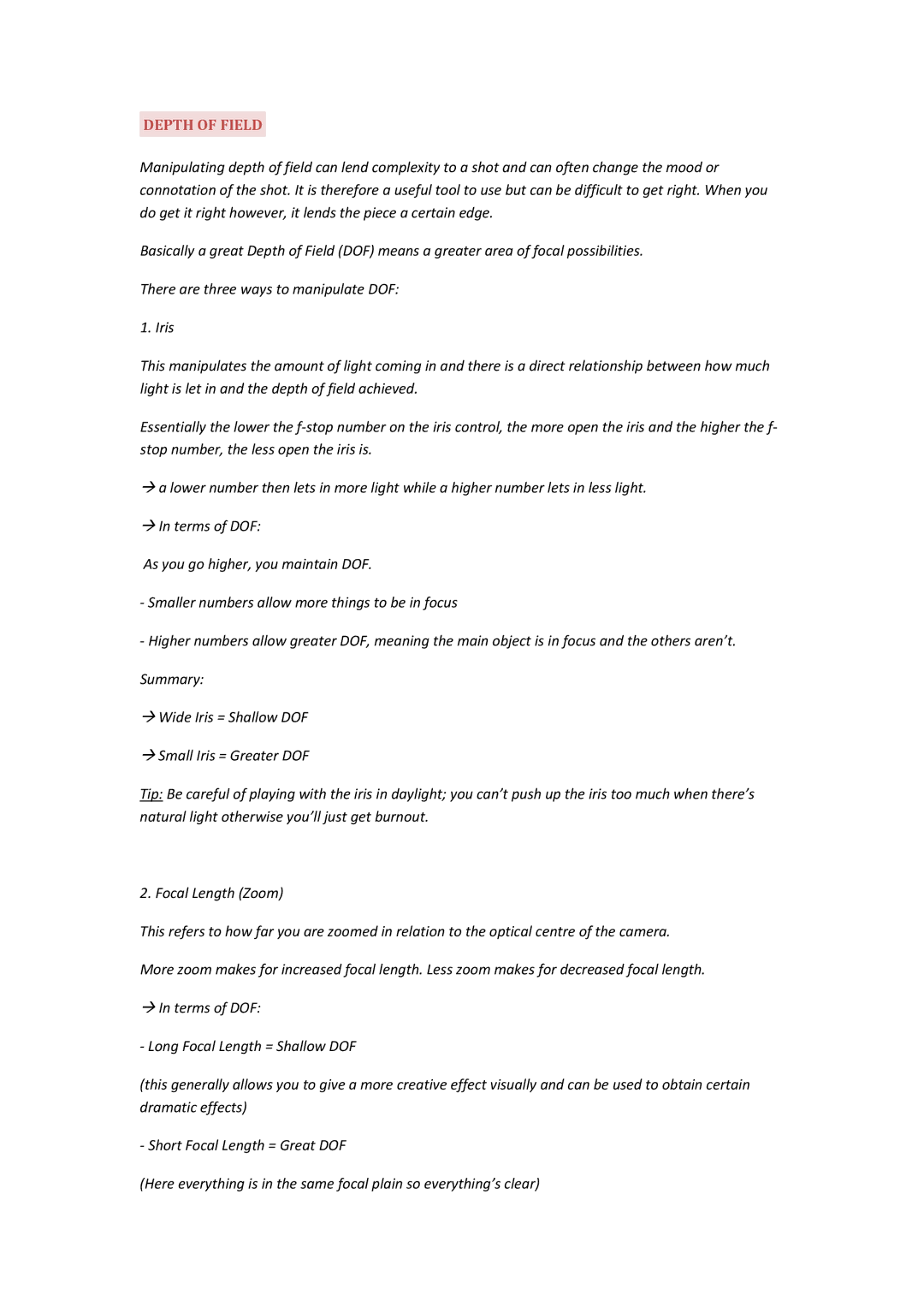DEPTH OF FIELD
Manipulating depth of field can lend complexity to a shot and can often change the mood or connotation of the shot. It is therefore a useful tool to use but can be difficult to get right. When you do get it right however, it lends the piece a certain edge.
Basically a great Depth of Field (DOF) means a greater area of focal possibilities.
There are three ways to manipulate DOF:
1. Iris
This manipulates the amount of light coming in and there is a direct relationship between how much light is let in and the depth of field achieved.
Essentially the lower the f‐stop number on the iris control, the more open the iris and the higher the f‐ stop number, the less open the iris is.
Æa lower number then lets in more light while a higher number lets in less light.
ÆIn terms of DOF:
As you go higher, you maintain DOF.
‐Smaller numbers allow more things to be in focus
‐Higher numbers allow greater DOF, meaning the main object is in focus and the others aren’t. Summary:
ÆWide Iris = Shallow DOF
ÆSmall Iris = Greater DOF
Tip: Be careful of playing with the iris in daylight; you can’t push up the iris too much when there’s natural light otherwise you’ll just get burnout.
2. Focal Length (Zoom)
This refers to how far you are zoomed in relation to the optical centre of the camera.
More zoom makes for increased focal length. Less zoom makes for decreased focal length.
ÆIn terms of DOF:
‐Long Focal Length = Shallow DOF
(this generally allows you to give a more creative effect visually and can be used to obtain certain dramatic effects)
‐Short Focal Length = Great DOF
(Here everything is in the same focal plain so everything’s clear)
